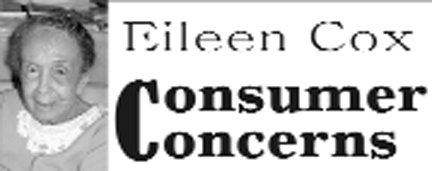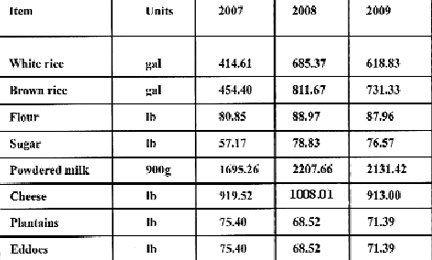 Over the months no word has been received and these pensioners have had to adjust to living with income reduced by one third. Total income was derived for CLICO pensioners from NIS pensions, old age pensions, and CLICO pensions.
Over the months no word has been received and these pensioners have had to adjust to living with income reduced by one third. Total income was derived for CLICO pensioners from NIS pensions, old age pensions, and CLICO pensions.
So what has been the solution? The first choice is to change your eating habits – no more chicken, less beef, less cheese, less butter and less of everything that helped you to survive. If you have a home of your own and still pay a mortgage you live in danger of losing your home. The mortgagors do not tolerate debts. It you fail to pay on the due date your home will be up for sale in a Sunday newspaper within months. Your fire insurance with Colonial Life and General Insurance will have come to an end.
There are other expenditures to be cut by those who are conscious of the environment and the need for cleanliness. No longer can the parapet be mowed every month. The mowing depends on the availability of cash.
The introduction of Value Added Tax in January 2006 has brought disaster to many, especially pensioners and other low-income consumers. A consumer receiving a 10 per cent discount from a supermarket would have found that VAT collection surpassed the discount. VAT on pine tarts and cheese rolls ruled these out of your market list. So you have to depend on bread and tennis rolls as your main dish even though the quality of bread has deteriorated. A bag of tennis rolls developed mildew three days after purchase. A taxi to the bakery and return home costs $600, a sizeable sum in your limited budget.
Vegetarians find that there is VAT on the imported canned beans that supply protein to replace what is lost each day.
It does seem that there is little regard for the health and survival of elderly persons. The Ministry of Human Services shows great concern for children but little for those who, unaided by family or friends, have to grapple with problems in a world that is changing at high speed. The pensioners under the Dependants Pension Fund have received not one cent to help them cope with VAT.
The Bureau of Statistics provided a table showing Georgetown Average, Commodity Prices for the period 2001 to May 2009.
Shown below are the prices of some foods for the years 2007, 2008 and 2009.
 The high increase for the year 2008 was said to be due to an increase in overseas prices; although the prices fell in 2009 they did not return to the former lower prices.
The high increase for the year 2008 was said to be due to an increase in overseas prices; although the prices fell in 2009 they did not return to the former lower prices.
In the meantime VAT has continued at 16 per cent, despite pleas for a reduction, and the total collection of VAT by far exceeds the amount anticipated.
Is the extra cash being deployed to help the needy cross these rough waters? No.




